Ulysseus second phase kicks off with more than 100 representatives in Montenegro
This event is designed to consolidate the achievements of phase I while paving the way for the next one.
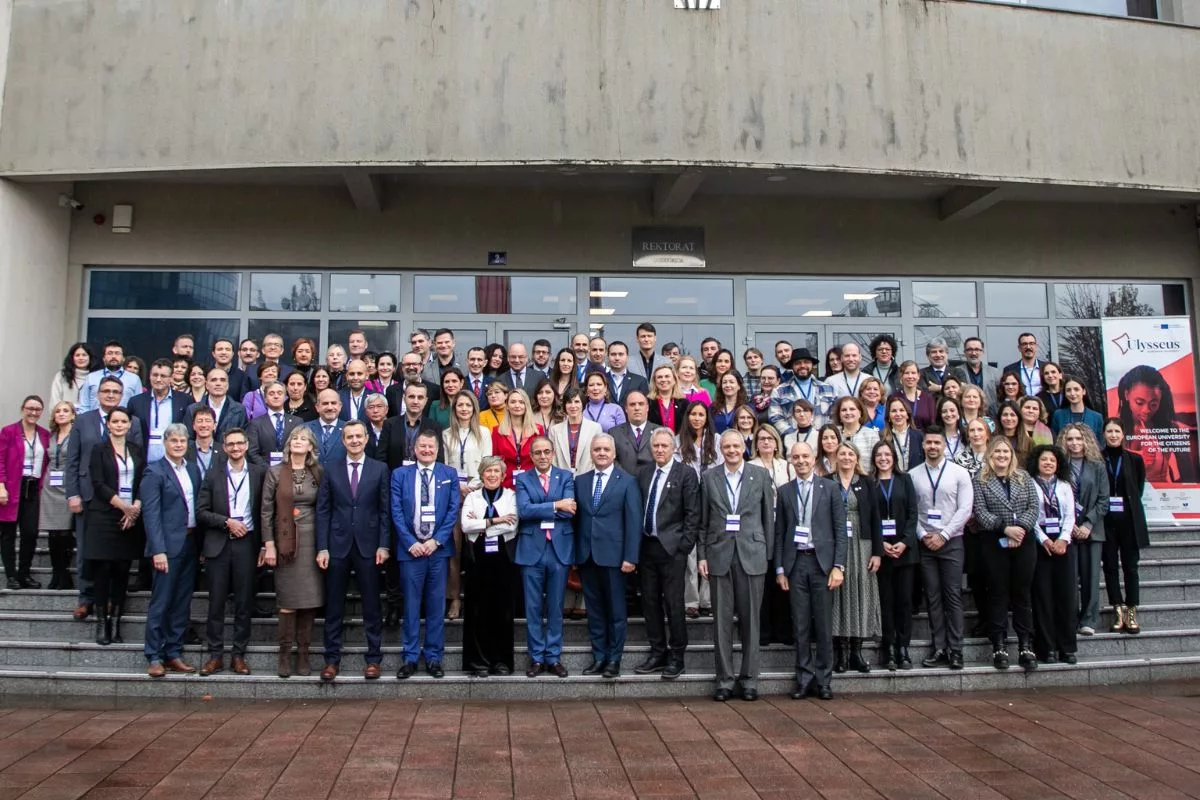
More than 100 representatives of Ulysseus partners’ universities gathered in Montenegro during the kick-off event for the second phase of Ulysseus European University. This is the first event in which the University of Münster (Germany) and the University of Montenegro (Montenegro) participate as full members of the Ulysseus Alliance which already included the University of Seville (Spain), as coordinator, the Université Côte d’Azur (France), the University of Genoa (Italy), the Technical University of Košice (Slovakia), MCI | The Entrepreneurial School® (Austria) and Haaga-Helia, University of Applied Sciences (Finland).
The events seeks to ensure alignment among both current and new member universities through reflection, collaborative discussions, and strategic sessions. The overarching aim is to strengthen the Ulysseus alliance’s vision of creating an inclusive, person-centred European university for future citizenship.
The first day of the event started with friendly greetings from the University of Montenegro’s organizers and engaging words from the Ulysseus consortium’s rectors and presidents. Vladimir Božović, rector of the University of Montenegro expressed “our heartfelt gratitude to our partners in Ulysseus for recognising us as reliable member of this alliance. The integration of our university in Ulysseus marks a significant milestone. With this programme we anticipate remarkable outcomes”.
Ulysseus “will bring the best in us to motivate us to enhance the quality of higher education, create opportunities for professional growth for students, faculty and staff and extend our influence to our broader community encompassing businesses, government and civil society”, said the rector.
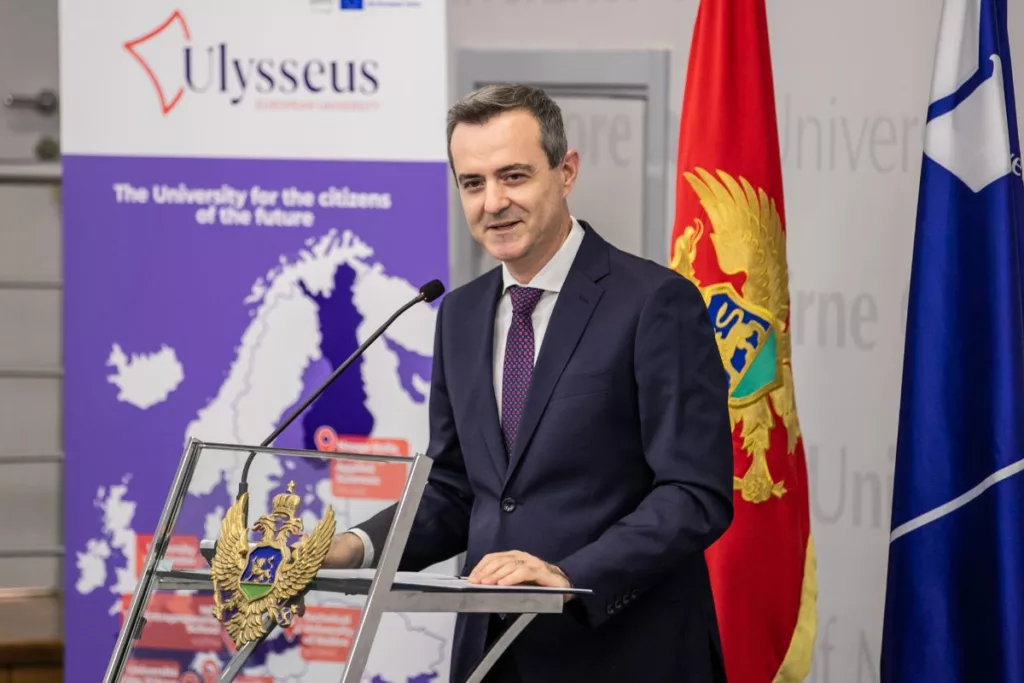
Vladimir Božović, rector of the University of Montenegro
After the initial greetings, the two new member universities of the alliance presented their viewpoints and the contributions they bring to the Ulysseus cooperative network.
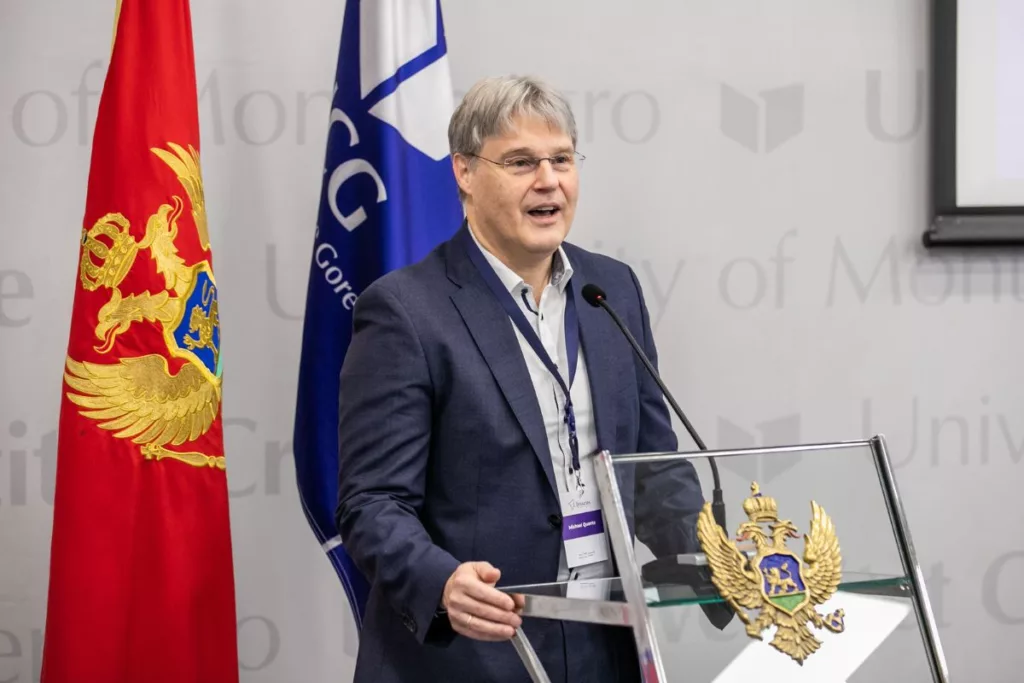
Michael Quante, Vice-Rector for Internationalisation, University of Münster
Key achievements and future improvements
During the rest of the day, the Alliance will review and celebrate the key achievements of the first phase of the project and analyzed lessons learned, best practices, and challenges, promoting a collaborative approach to future improvements.
The event is serving to lay the foundations for the new stage of Ulysseus. The members are working in several parallel sessions on issues such as the legal status of the Alliance, the communication strategy, gender policies, international strategy beyond EU borders and the assessment of the impact of the alliance in each of the communities.
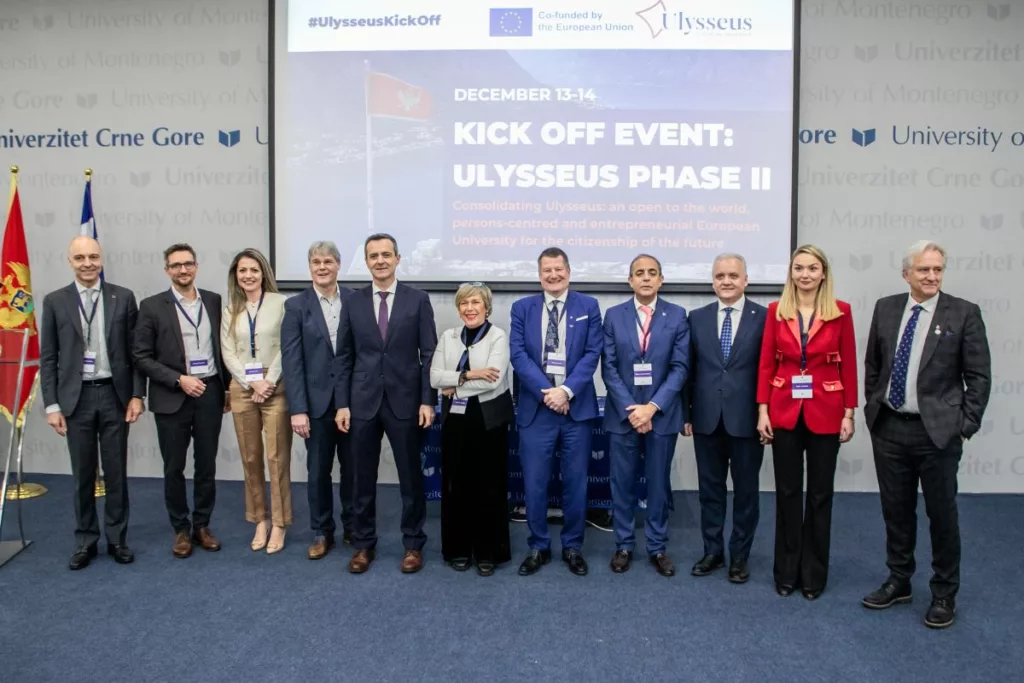
Representatives from all Ulysseus partner universities
Ulysseus enters this new stage with several joint master’s degrees about to be operational, a new call for its first joint master’s degree on Smart Cities already open among them, new double degrees available to the community, and new satellite projects to strengthen the strategy of the alliance.
New Innovation Hubs
Ulysseus Kick-off event in Montenegro is the first time that the new Innovation Hubs will work together on the search for a comprehensive European centre of innovation and collaboration. Discussions are focusing on the establishment of a living lab for idea prototyping, enhancing educational opportunities, nurturing start-ups through an incubation program, and the development of a Data Warehouse.
Ulysseus has now eight Innovation Hubs (IH), one at each partner University, which address Research & Development challenges shared with European regions and cities: Sustainable Energy, Transport, Mobility for Smart Cities (University of Seville); Ageing and Well-being (Université Côte d’Azur), Robotics (University of Genoa), Digitalization Transformation for Industry (Technical University of Košice); Sustainable Entrepreneurship & Impact (MCI | The Entrepreneurial School®); Artificial Intelligence for Business and Education (Haaga-Helia, University of Applied Sciences); Socio-ecological sustainability (University of Münster); and Cibersecurity (University of Montenegro).
Second day of the event
The event will close on Thursday morning with the conclusions of the parallel sessions organized during the first day and two key meetings: one will introduce the associated partners of Ulysseus 2, offering a brief overview of their profiles and engagement activities; and the second one will review the accomplishments of satellite projects, highlighting their contributions and impact. Additionally, in collaboration with JRC and SIRIS-Academic, experts will share insights on the importance of leadership in fostering interactions within an ecosystem.
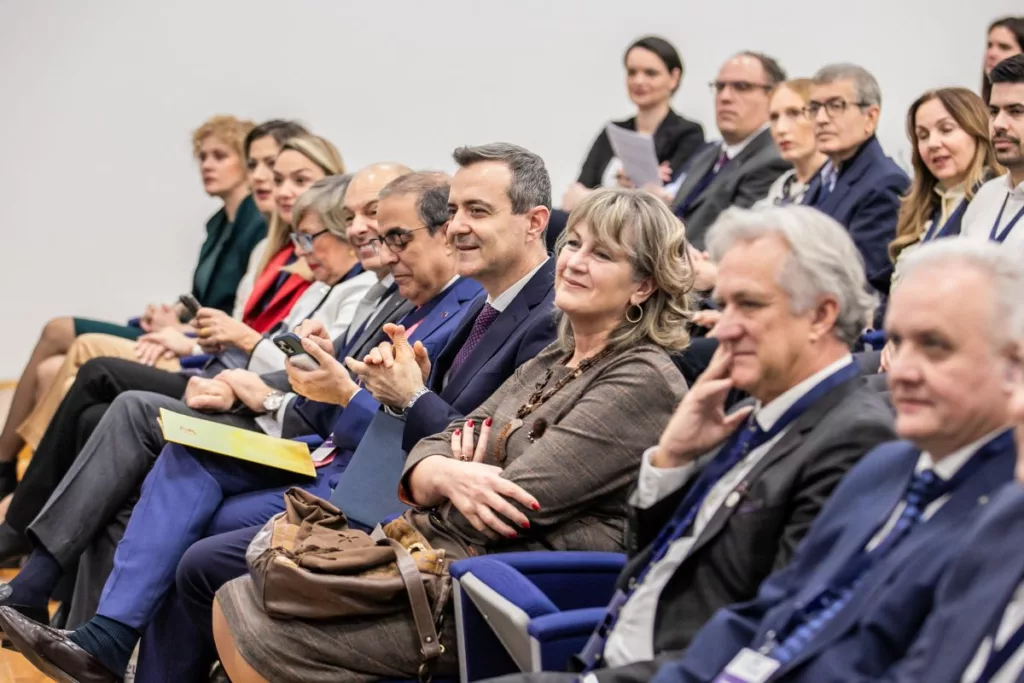
About Ulysseus
Ulysseus Alliance vision for 2030 is to develop an excellency-recognized and internationally attractive open to the world, persons-centred and entrepreneurial European University for the citizens of the future. By doing so, our ambition is to contribute to shape the European Higher Education and Research Areas, and hence the future of Europe.
Ulysseus is one of the 50 European Universities selected by the European Commission to become the universities of the future. Led by the University of Seville together with seven other universities in Europe (the University of Genoa, Italy; Université Côte d’Azur, France; the Technical University of Košice, Slovakia; MCI | The Entrepreneurial School®, Austria; Haaga-Helia University of Applied Sciences, Finland; the University of Münster, Germany; and the University of Montenegro, Montenegro), the project will allow students, researchers and graduates to move freely between universities, carry out internships in companies and start high-impact research projects.